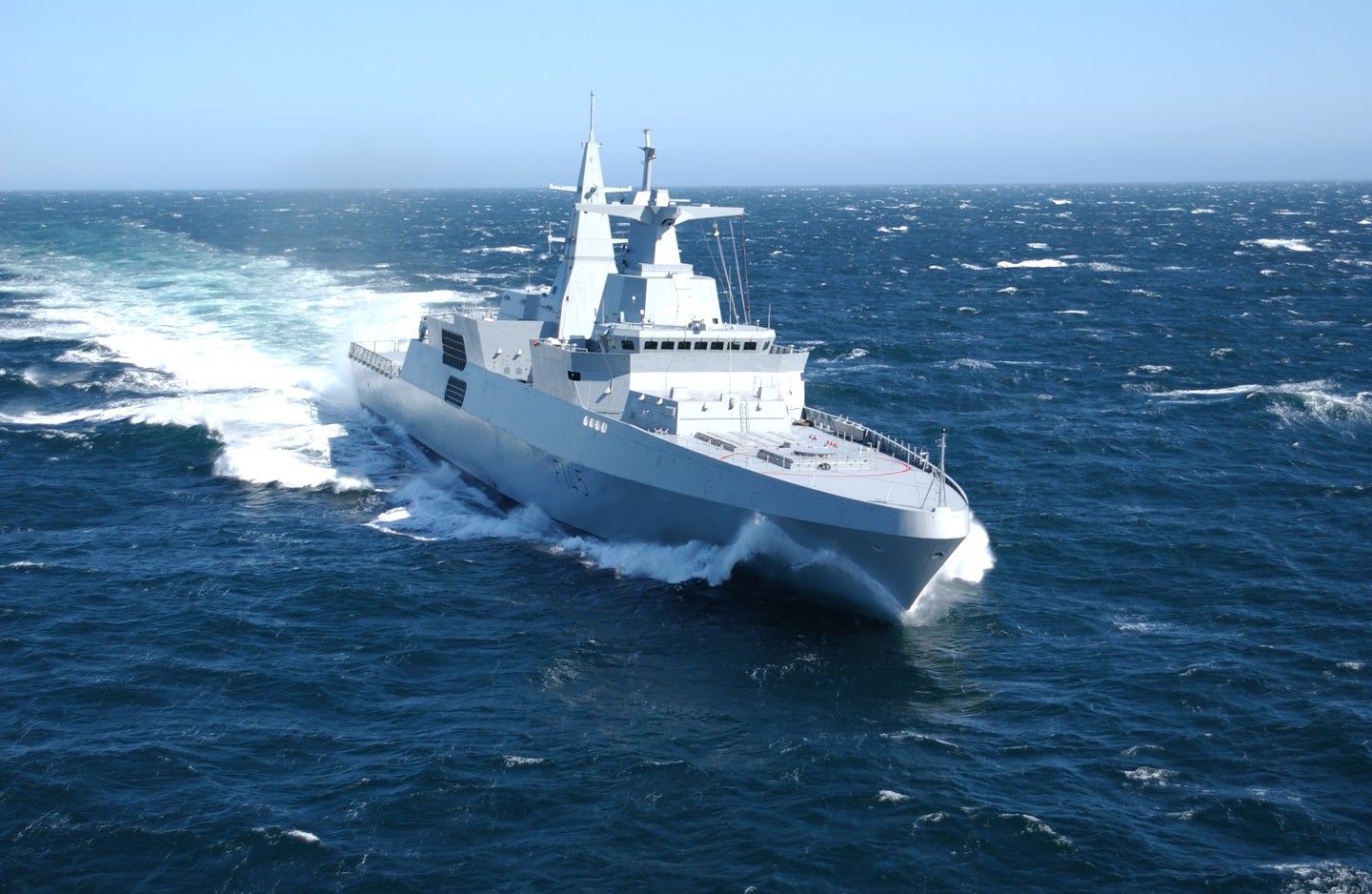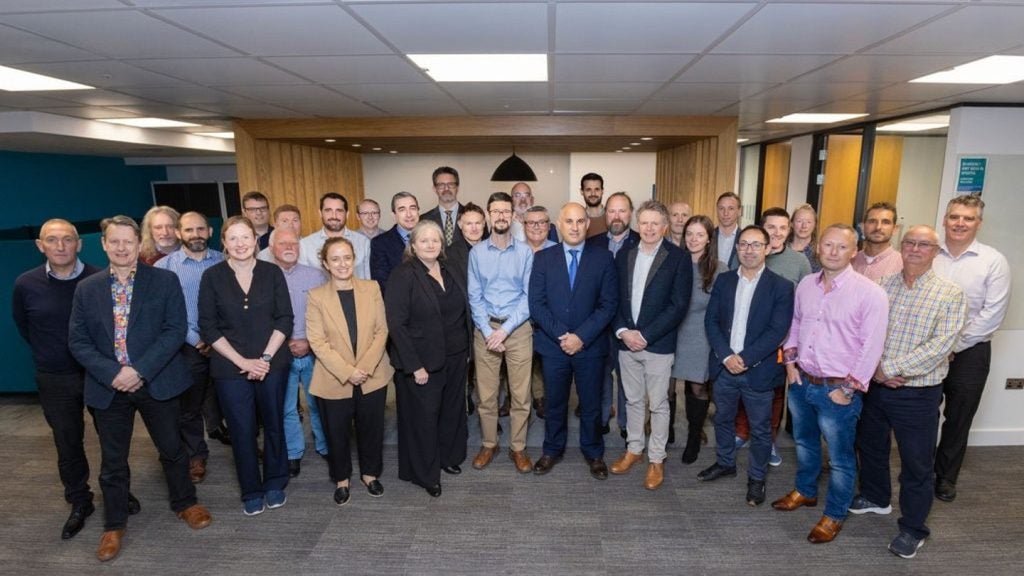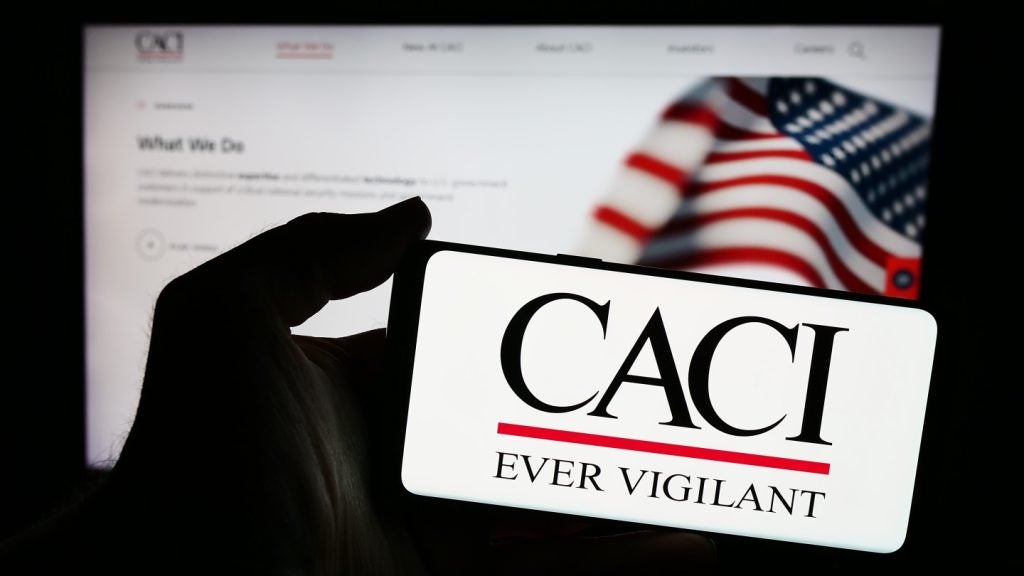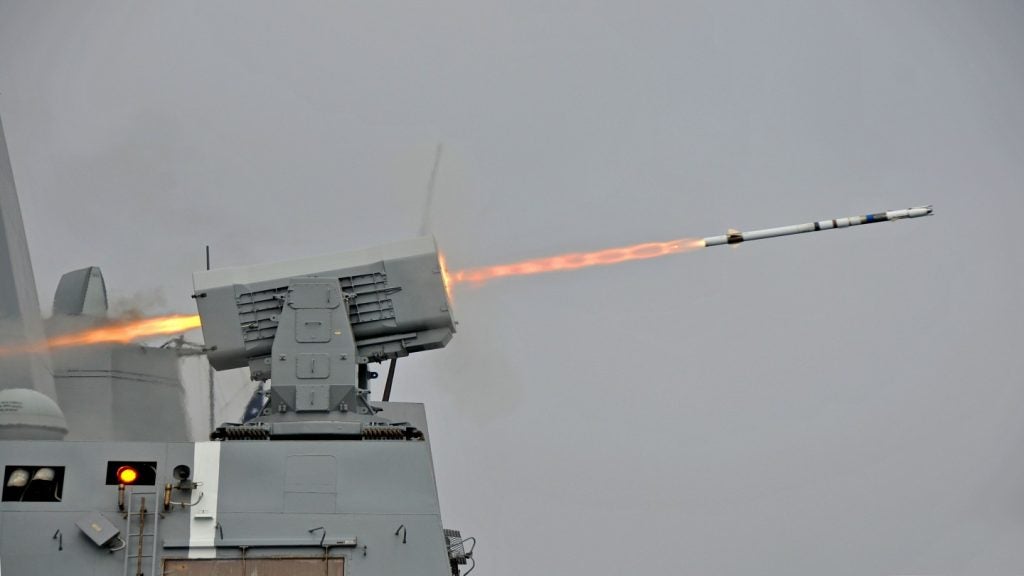
The Egyptian Navy celebrates its acceptance of another MEKO A-200 EN frigate alongside the German manufacturer, ThyssenKrupp Marine Systems, at a ceremony in Bremerhaven.
The vessel is the second in a series of four frigates for the Egyptian Navy as part of a contract signed in September 2018.
The Commander in Chief of the Egyptian Navy, Vice Admiral Ashraf Ibrahim Atwa, named the ship Al-Qahhar, meaning “The Irresistible Subduer”.
In total, Egypt ordered four structurally identical vessels; with Germany to build the first three units and the Alexandria Shipyard to build the fourth vessel in Egypt.
ThyssenKrupp’s CFO, Paul Glaser, stated: “The first-of-class ship Al-Aziz is already in service and has since proven its technical capabilities and reliability, and its sister ship Al-Qahhar will be just as successful.”
Construction work on Al-Qahhar started in December 2019, with keel laying in March 2020 and launching in August 2021. She will start the journey to her homeport in Alexandria in a few days. The next milestone in this project will be the handover of the third vessel of the series, Al-Qadeer, later this year.
How well do you really know your competitors?
Access the most comprehensive Company Profiles on the market, powered by GlobalData. Save hours of research. Gain competitive edge.

Thank you!
Your download email will arrive shortly
Not ready to buy yet? Download a free sample
We are confident about the unique quality of our Company Profiles. However, we want you to make the most beneficial decision for your business, so we offer a free sample that you can download by submitting the below form
By GlobalDataGlobalData intelligence tells us that political uncertainty has deterred defence companies from continuing to participate in the Egyptian defence sector. The continued contract between the European steel manufacturer and Egypt represents a unique partnership.
The role of the MEKO A-200 EN frigate in Egypt’s navy
The next-generation MEKO vessels are more than 121 metres long, 16 metres wide and have a maximum speed of more than 29 knots.
The contractor, ThyssenKrupp, stated: “the frigates are dedicated to taking on the role of the new central combat platform of the Egyptian Navy. Each ship will possess an extensive range of both defensive and offensive capabilities.”
GlobalData Naval analyst, James Marquess, tells us that the MEKO frigate platform is a high-end model and that each version is usually customised for every customer.
“Egypt’s frigates are some of the most recent and have a good Thales AESA radar. They are solid, all-round ships. They have a good size and crew complement for the size of Egypt’s navy and responsibilities.
“As MEKO have refined this ship design over quite a few years it’s well regarded for its reliability and flexibility.”
Egyptian Navy structure
GlobalData outlines the platforms used in the Egyptian Navy.
The country currently employs four Oliver-Hazard Perry-class and two Knox-class active frigates acquired from the US in 1998 and 1996 respectively.
Their most recent batch of frigates – 2 active FREMM units acquired between 2020-21 from Fincantieri – are have been the primary cpmaby platform of the navy until now.
It is notable that FREMM and MEKO are direct competitors and the customer can integrate similar weapon loads to the competing frigates. This leaves us wondering why the navy decided to adopt both platforms.
In 2015, the French-based Naval Group (DCNS) removed the SYLVER A70 vertical launching system and the NETTUNO-4100 jamming equipment from the FREMM vessel it provided the Egyptian Navy. France is known for its limited technology sharing, which could explain why Egypt secured the MEKO contract later in 2018.







